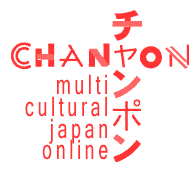2003年11月18日 火曜日
Notes from Izu Conference discussion about the US
by Joichi Ito
Politics
I recently attended the 22nd annual Izu Conference where 50 people from academia, business, the bureaucracy and politics come together each year to talk about an issue for two days.
I posted the notes from kickoff lecture on my blog.
Here are some random and rough notes from the discussion. We ended up talking about as much about Japan as the US.
First of all, I think I was youngest participant and definitely not representative of the middle, if there was one. There were some very strong nationalists as well as people with very international backgrounds. There were people whose memory of Americans starts from receiving chocolates and chewing gum from GI's.
There was a lot of comparison of the US with the Roman Empire and how it finally collapsed from within. Rome gave us the culture of wine and the technology of olive oil, what is the US equivalent?
There was a strong sense that US democracy is able to recover from swings to the left and the right because people think for themselves and are able to affect the government. There were some people who were worried about whether this was still true, but I think the general sense of the room was that it was true.
Someone randomly noted that Japanese bureaucrats are generally the best students from the best universities who can't speak English. The others are going to foreign firms. No wonder the bureaucracy doesn't understand the US.
Japanese youths are no longer in love with the US like previous generations. There is definitely some healthy local cultural creativity and a kind of healthy nationalism growing among some youths in Japan.
Japan is all about personal relationship whereas the US is about performance. It's no wonder the US is more productive. However, the question is, does that make them more happy? Are American's more happy than Europeans and Japanese? Some people thought maybe not. I would personally argue that suicide statistics and mental health statics probably lean towards showing Japan as having more problems, but I'm not sure about these statistics. I wonder what metric would determine if Europeans were happier than Americans...
The Japanese have no goals, vision and very little identity. This was not always the case. I the past, people have risked their lives to try to pursue reform and change.
We had a participant who is a board member of the Sumo board. She said that it was VERY difficult for foreigners to understand Sumo. With Akebono turning K1 and Musashinomaru retiring, there was only one American Sumo wrestler in Japan, Saint Lui from St. Louis. The problem was, that if you didn't have enough hair to make a Sumo hair tassle on your head, you had to retire and Saint Lui's tassle was about the size of a small dumpling so Musashinomaru was effectively the end (for now) of American participation in Sumo. The difficulty that Americans have is that in the true art of Sumo, you are not supposed to show happiness when you win or sorrow when defeated. You are supposed to be like a rooster carved in wood with no expression. Foreigners don't understand why they can't express their emotions as athletes and inevitably become unhappy. (Some Japanese do as well.)
Japan relies on the US military protection and is trying to reciprocate. The question was raised as to whether when push comes to shove, whether the US would really protect Japan. The point was that maybe Japan is over-estimating its importance and in fact Japan is actually irrelevant at this point to the US. Maybe Japan should become more normal and independent instead of thinking that it is an equal in this actually asymmetrical relationship.
Many of the Japanese were critical of US standards being called "global standards" in Japan. The counter-argument was that best practices became global standards because they worked and the US didn't have a monopoly on this. For instance, just-in-time manufacturing was pioneered in Japan and is now used worldwide. The US readily accepted that and is probably now ahead of the US in just-in-time if you look at Dell, Amazon and others as examples of this. I think most people agreed that it was better to copy first, then modify and improve, rather than reject US practices in business, law and other fields because they were foreign. However, there were a few people who strongly disagreed.
Maybe people felt that getting rid of Tokyo/The Central Government was the key to Japan's recovery. Local governments should become nations like nations in the EU. I agree with this idea.
Several people said we needed to increase immigration and open up Japan. I agreed with this too, but suggested that we have to culturally and legally accept diversity before anyone would even really want to move to Japan and that this was a deep issue. Some people argued that the US had more racism whereas some people argued that Japan was more racist, but it was just hidden. I think both countries have different kinds of racism and that there is racism in just about any country if you look for it.
Posted by Joichi Ito at 2003年11月18日 08:51

Comments
It's interesting to think about what a "healthy nationalism" might look like for contemporary Japan. It has such negative connnotations historically... I imagine it would be very self-consciously positioned in relation to other countries like the US and other Asian countries. Does the international popularity of Japanese technocultures have anything to do with this contemporary national pride? There there is really a Japanese vision and identity.